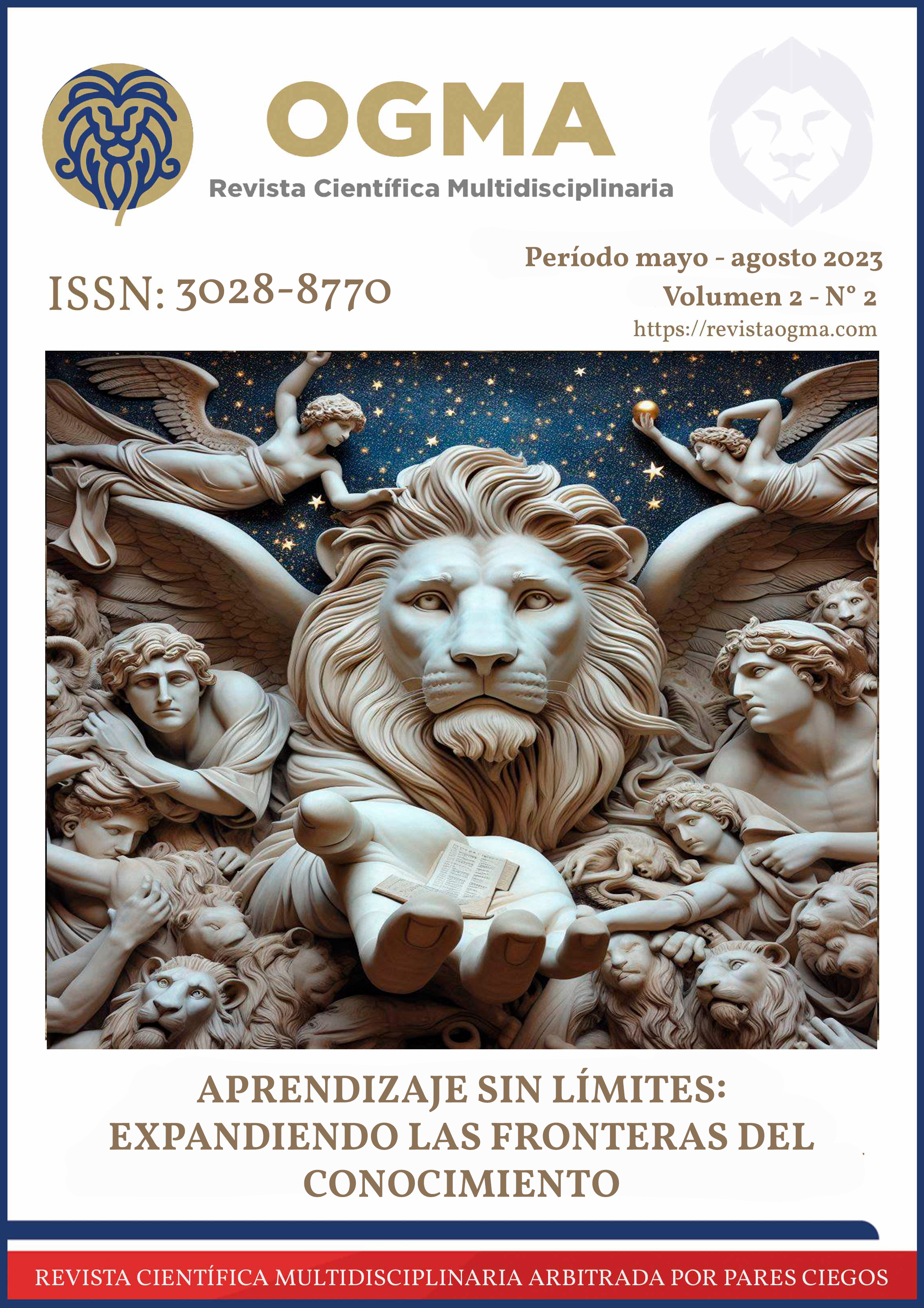Change in the institutional management model based on educational research
Keywords:
Education, Educational research, Educational management, Teaching profesiónAbstract
This essay is proposed with the purpose of reflecting on the development of educational research in Latin America and its relation with the importance of changing the management model of educational institutions from the performance of teachers, since they are transcendental subjects to propose research processes that contribute to the autonomous and collective development of educational centers. From this perspective, it is explained how research has evolved in relation to Latin American educational problems, which faces a change of paradigm, from a rigid one controlled by governments to an autonomous and integrated one. This paradigm allows educational institutions a sustainable development based on management axes in the political-administrative, pedagogical-didactic and communicational areas. Finally, this manuscript is completed with a review of current teaching competencies. This implies a comprehensive training in conjunction with the development of research-educational processes within the institutions to meet the needs of the school context. It also means a contribution to the reflection of the Latin American education system in the socio-educational context.
References
Álvarez, M., Uribe, J. y Soto, D. (2007). La historia de la educación latinoamericana, un Campo de formación doctoral en RudeColombia. Revista Historia de la Educación Latinoamericana, (9), 11-30. https://www.redalyc.org/pdf/869/86900902.pdf
Bone-Obando, C., Tenorio-Campos, J. y Maldonado-Santana, J. (2017). Investigación para el desarrollo educativo. Dominio de las Ciencias, 3, 324-337. https://dialnet.unirioja.es/descarga/articulo/6134921.pdf
Chacón, L. (2014). Gestión educativa del siglo XXI: bajo el paradigma emergente de la complejidad. Omnia, 20(2), 150-161. https://www.redalyc.org/articulo.oa?id=737/73735396006
Escribano, E. (2018). El desempeño del docente como factor asociado a la calidad educativa en América Latina. Revista Educación, 42(2), 1-15. https://revistas.ucr.ac.cr/index.php/educacion/article/view/27033/pdf
Garbanzo-Vargas, G. (2016). Desarrollo organizacional y los procesos de cambio en las instituciones educativas, un reto de la gestión de la educación. Revista Educación, 40(1), 67-87. https://www.redalyc.org/articulo.oa?id=440/44043204005
Herrera, J., Parrilla, Á., Blanco, A. y Guevara, G. (2018). La Formación de Docentes para la Educación Inclusiva. Un Reto desde la Universidad Nacional de Educación en Ecuador. Revista latinoamericana de educación inclusiva, 12(1), 21-38. https://dx.doi.org/10.4067/S0718-73782018000100021
López, L. y Tapiero, E. (2005). Modelo de desarrollo institucional integrado, referente para la formación profesional de la docencia en la Universidad de la Amazonía. https://www.oei.es/historico/oeivirt/salacredi/Lillyam.pdf
Martínez, A. (2009). La educación en América Latina: un horizonte complejo. Revista Iberoamericana de Educación, (49), 163-179. https://rieoei.org/historico/documentos/rie49a06.pdf
Ortiz, M., Fabara, E., Villagómez, M. y Hidalgo, L. (2017). La formación y el trabajo docente en el Ecuador. https://dspace.ups.edu.ec/bitstream/123456789/14919/1/La%20formacion%20y%20el%20trabajo%20docente%20en%20el%20Ecuador.pdf
Palamidessi, M., Gorostiaga, J. y Suasnábar, C. (2014). El desarrollo de la investigación educativa y sus vinculaciones con el gobierno de la educación en América Latina. Perfiles Educativos, 36(143), 49-66. https://core.ac.uk/download/pdf/82493736.pdf
Rengifo-Castañeda, C., Cañaveral-Londoño, D. y Giraldo-Zuluaga, C. (2018). El rigor y la objetividad en la ciencia según la epistemología de Evandro Agazzi. Discusiones Filosóficas, 33, 133-158. http://www.scielo.org.co/pdf/difil/v19n33/0124-6127-difil-19-33-00133.pdf
Rivas, L. (2011). Las nueve competencias de un investigador. Investigación Administrativa, (108), 34-54. https://www.redalyc.org/pdf/4560/456045339003.pdf
Tapiero, E. y García, B. (2008). La teoría neosistémica y desarrollo institucional. Universidad La Sabana, 11(2), 213-226. https://www.oei.es/historico/oeivirt/salacredi/Lillyam.pdf
Torres, A., Badillo, M., Valentín, N. y Ramírez, E. (2014). Las competencias docentes: el desafío de la educación superior. Innovación educativa, 14(66), 129-146. http://www.scielo.org.mx/pdf/ie/v14n66/v14n66a8.pdf
Villalta, M. (2016). Educación intercultural en Latinoamérica: Análisis de las investigaciones de campo en la región. Psicoperspectivas, 15(1), 130-143. https://dx.doi.org/10.5027/psicoperspectivas-Vol15-Issue1-fulltext-605
Villaroel, V. y Bruma, D. (2017). Competencias Pedagógicas que Caracterizan a un Docente Universitario de Excelencia: Un Estudio de Caso que Incorpora la Perspectiva de Docentes y Estudiantes. Formación Universitaria, 10(4), 75-96. https://scielo.conicyt.cl/pdf/formuniv/v10n4/art08.pdf
Downloads
Published
Issue
Section
License
Copyright (c) 2023 Multidisciplinary Scientific Journal Ogma

This work is licensed under a Creative Commons Attribution-NonCommercial-ShareAlike 4.0 International License.

